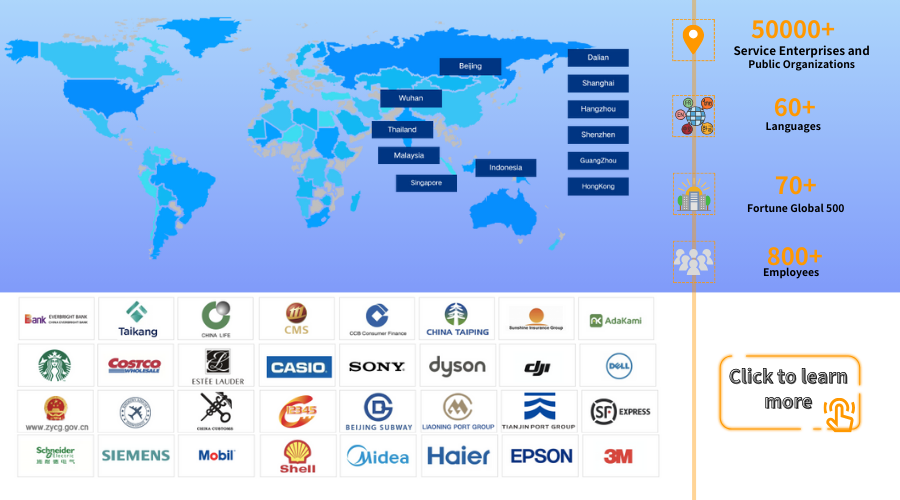The Rise of the Knowledge Base Chatbot
Article Summary:While early chatbots struggled with natural language understanding and generation, newer generations are leveraging large knowledge bases and machine learning to handle complex conversations. Knowledge base chatbots have become a popular tool for customer service, using structured data to respond to a wide variety of queries automatically.
Chatbots have evolved rapidly over recent years from simple question-answering programs to more advanced conversational agents. While early chatbots struggled with natural language understanding and generation, newer generations are leveraging large knowledge bases and machine learning to handle complex conversations. Knowledge base chatbots have become a popular tool for customer service, using structured data to respond to a wide variety of queries automatically.
Traditional FAQ bots rely on predefined questions and answers but lack the flexibility for open-domain conversations. Knowledge base chatbots take a different approach, drawing responses dynamically from a structured database containing entities, attributes, and relationships. The knowledge base contains information about a company's products, services, policies and more. By querying this data, chatbots can understand questions, retrieve relevant answers, and engage in back-and-forth dialogues.
When a user asks a question, the chatbot first performs natural language processing to extract the key entities, intents, and relationships mentioned. It searches the knowledge base for matching concepts and formulates a response based on the most similar and relevant information found. If an exact match cannot be determined, the chatbot may ask follow-up questions to clarify or narrow down the search parameters. Through this process of understanding, searching, and clarifying, knowledge base chatbots can handle a much broader range of inquiries compared to traditional FAQ bots.
The knowledge base serves as the chatbot's long-term memory, constantly expanding and improving its conversational abilities. New frequently asked questions, product details, policies and more can be added over time based on real customer interactions. Machine learning techniques also help chatbots learn from every dialogue, refining their natural language skills and selecting more appropriate responses. As the knowledge base grows, so too does the bot's expertise and quality of assistance.
For businesses, knowledge base chatbots deliver significant benefits. They provide 24/7 automated support to customers at a fraction of the cost of live agents. By handling basic queries independently, chatbots free up human representatives to focus on more complex issues. They also improve the customer experience through faster response times, personalized interactions, and a consistent service regardless of agent availability.
From a technical perspective, knowledge bases allow chatbots to scale more effectively than hard-coded systems. New information can be added without disrupting existing conversations or requiring retraining. Multiple chatbots can also leverage the same knowledge base, synchronizing updates across platforms. This shared knowledge eases maintenance burdens and streamlines support across channels like websites, mobile apps, and messaging services.
Major companies in many industries have adopted knowledge base chatbots to enhance their digital customer care. In the travel sector, airlines like KLM and hotels such as Marriott deploy bots to answer reservation inquiries and address service issues. Financial institutions including Capital One use chatbots to provide account information and assist with payments or transfers. E-commerce leaders like eBay have implemented knowledge base bots to help shoppers find products and track orders.
As knowledge bases and natural language technologies continue advancing, chatbots will take on more human-like qualities in conversations. They will gain deeper domain expertise through immense stores of structured data. Chatbots may even surpass live agents in quickly resolving certain routine issues. For businesses seeking to offer personalized, engaging support at massive scale, knowledge base chatbots represent the future of automated customer service.
Udesk is a leading provider of AI-powered customer service solutions including knowledge base chatbots. Our bots leverage large knowledge graphs containing petabytes of enterprise data. Powered by deep learning models, Udesk chatbots understand language nuances to converse naturally with customers. Businesses can create, edit and analyze knowledge bases through an intuitive interface, giving agents and subject matter experts control over bot responses.
Take our AI Chatbot for a spin—for free—to see how it can work for your business.
The article is original by Udesk, and when reprinted, the source must be indicated:https://www.udeskglobal.com/blog/the-rise-of-the-knowledge-base-chatbot.html
AI ChatAI chatbotCustomer Service Chatbot

 Customer Service& Support Blog
Customer Service& Support Blog



